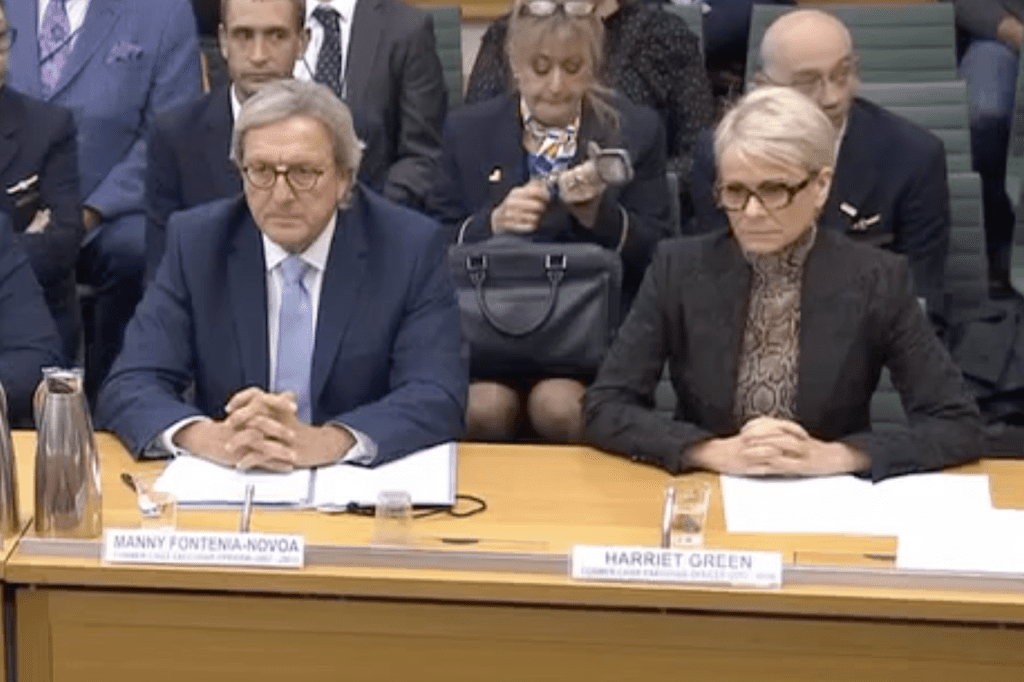Skift Take
It was the appearance everyone was waiting for. The two former Thomas Cook CEOs had very, very different ideas about how to run a travel company. The problem is that the business is no longer around, meaning they are both somewhat tarnished by failure.
Two of Thomas Cook’s former CEOs clashed over the business strategies they both employed at a hearing into the company’s collapse.
There were myriad reasons behind its failure and many of them can be traced back more than a decade, encompassing both the reigns of Manny Fontenla-Novoa, the CEO between 2003 and 2011, and Harriet Green, CEO between 2012 and 2014.
Both got the opportunity on Wednesday to explain their actions during the third day of evidence at the UK parliament’s Thomas Cook inquiry. Unsurprisingly, they saw things very differently.
Fontenla-Novoa’s tenure saw the massive expansion of the company, its ill-fated mergers with MyTravel and the Co-operative Travel and the accumulation of debt. Green undid most of the work, selling off businesses and closing shops.
In effect, Green and Fontenla-Novoa represented two different ways of running a business. Fontenla-Novoa had spent his life in the travel industry and worked at Thomas Cook for a number of years before eventually getting the top job. Green was an outsider, brought in to undo many of her predecessor’s actions, cutting the debt and selling businesses.
At the core, was a disagreement over what sort of business Thomas Cook should have been. Should it have emulated TUI and newer entrant Jet2, chasing scale and investing in assets or should it have turned itself into a digital business, to compete with online travel agencies. In the end Thomas Cook tried to do a bit of both and succeeded at neither.
Looking back on his time at Thomas Cook Fontenla-Novoa said of course he had some regrets but that the merger with MyTravel “was the right decision” and the overall strategy was the right one to pursue.
“I’ve got to say I thought Harriet did a very good job of restoring confidence in Thomas Cook, rebuilding the share price, but I fundamentally disagree with her in terms of the structure of the travel industry. I think there’s still a place for traditional package holidays,” he said.
Green’s view was very different and she pointed out on numerous occasions the struggling business that she inherited from Fontenla-Novoa.
“The responsibilities I had were characterized in 2012 by three profit warning a huge wall of debt and a business model that was entirely out of sync with the industry,” she said.
Green wished she had had a board that better understood business transitions, and wanted to invest “money in something other than planes”, such as in high-tech, Apple-like travel shops.
Green also revealed how she was fired by chairman Frank Meysman with the company looking to appoint a traditional travel executive.
“Certainly the board and I had disagreements around the level of assets around the rate and pace of a digital transformation,” she said.
Green and Fontenla-Novoa gave evidence after their successor, Peter Fankhasuer, testified.
Role of Auditors
As well as looking at the actions of past CEOs, earlier in the week the inquiry committee heard from accountancy firms involved in Thomas Cook audits.
Committee chair Rachel Reeves, accused both EY and PwC of being “complicit” in the collapse of Thomas Cook.
Some of the criticism centered on the conflict of interest at the heart of these firms, where they not only audit a company but also offer consultancy work.
This was the case with PwC, which audited Thomas Cook between 2007 and 2016 and at the same time earned £21 million from other services.
EY, which was only involved with Thomas Cook between 2017 and 2019, earned £7.6 million from auditing and £2.4 million in non-audit fees (although Christabel Cowling, head of regulatory and public policy, EY, stressed that “all the work that we did while we were auditors of Thomas Cook was work required to be done by the auditor. This is not discretionary work or advisory work).
The Thomas Cook collapse is the latest in a line of failures in which politicians have pointed the finger at the accountancy industry.
“We have heard today about conflicts of interest in advising the remuneration committees on bonuses and at the same time doing the audit work; and that the profit-sharing is profit-sharing across the whole business and that there is no separation between the two,” Rachel Reeves, chair of the Business, Energy and Industrial Strategy Committee, which is leading the inquiry said on Tuesday.
“So, it seems to me and this Committee, you cannot get rid of those conflicts of interest unless you have a separation of the audit and the non-audit part of the business.”
The Daily Newsletter
Our daily coverage of the global travel industry. Written by editors and analysts from across Skift’s brands.
Have a confidential tip for Skift? Get in touch
Tags: europe, thomas cook, uk
Photo credit: Harriet Green and Manny Fontenla-Novoa, former Thomas Cook CEOs appearing at an inquiry into the collapse of the company. Thomas Cook Group is currently in liquidation. Parliamnetlive.TV
